|
|
EFMC WELCOMES CHRISTA MÜLLER AS NEW EC MEMBER
EFMC welcomes Prof. Christa Müller (University of Bonn, Germany) as new member of the EFMC Executive Committee (EC). We are very much looking forward to a fruitful collaboration with her, and with the other EC members: Yves P. Auberson (Past President), Anders Karlén (Secretary), Antoni Torrens (Treasurer), Luc Van Hijfte and Gianluca Sbardella (Members).
I also want to express my gratitude to Franz von Nussbaum, now leaving the EC, for his extraordinary and unique contribution to EFMC.
Rui Moreira
EFMC President
CHEMISTRY EUROPE SIGNS COLLABORATION AGREEMENT WITH EFMC
Chemistry Europe journals ChemMedChem and ChemBioChem to become official journals of European Federation for Medicinal Chemistry and Chemical Biology (EFMC).
The collaboration agreement aims to increase the visibility of ChemMedChem and ChemBioChem, bring valuable additional benefits to readers, authors, and early-career researchers, and thus strengthen the science of medicinal chemistry and chemical biology. ChemMedChem and ChemBioChem will become official journals of EFMC but continue to be owned by Chemistry Europe. The journals will display the label "official journal of EFMC" on their covers.
“We are very happy for this new step in the collaboration with Chemistry Europe, which allows for a broader dissemination and visibility of the excellent research carried out by the medicinal chemistry and chemical biology communities across Europe”, says Professor Rui Moreira, President of the EFMC.
Read the full press release.
11th EFMC-YSN MEDCHEMBIOONLINE | LATE STAGE FUNCTIONALISATION
The upcoming edition of the now renowned MedChemBioOnline series will take place on April 26 between 17:00 and 19:15 CEST. It will be chaired by Dr Michele Mari (University of Urbino Carlo Bo, Italy) and will be dedicated to both Late Stage Functionalisation and Peer Review.
Have a look at the programme:
- Late-Stage C-H Functionalization of Arenes
Prof. Tobias Ritter (Max-Planck-Institut für Kohlenforschung, Germany)
- Peer Review: Best Practices and Insights for Referees & Authors
Dr David Peralta (ChemMedChem, Germany)
- Round Table Discussion around the topic of Integrity of Data and Peer Reviewing in MedChem and ChemBio, with editorial board members of major European and US journals.
More info and registration on www.medchembio.online.
Interested in becoming the exclusive sponsor of the event? Reach out to us at medchembioonline@ysn-efmc.info.
LITERATURE SPOTLIGHT
The “literature spotlight” section of the newsletter will bring you a summary of recently published research in a concise and accessible way. Multiple thematics from different journals will be highlighted thanks to the valuable contribution of members of the EFMC working groups.
This latest contribution will focus on the recently published article “Jumping From Fragment to Drug Via Smart Scaffolds” (by Majid D. Farahani in ChemMedChem).
Given the escalating costs, slow pace, and high attrition rates of new drug discovery and development, an alternative strategy called drug repurposing is becoming increasingly attractive. New drugs are expected to take at least between 10 and 15 years to develop, which can be unacceptable, especially for combating a rapidly emerging pandemic. Therefore, several drug repurposing campaigns have been launched in the last two years, investigating existing drugs for the treatment of SARS-CoV-2 infections.
Rather than simply screening thousands of drug molecules, Farahani and colleagues screened a library of 461 fragment-sized compounds. The library was carefully assembled to include scaffolds found in drugs currently on the market. They performed a 19F NMR fragment screen against the target protein ACE2 and identified one fragment hit. It was trimmed (CF3 group) to yield a “smart scaffold” (phenylpiperazine). The scaffold was used as a reference for a virtual search to find compounds with this substructure from the library of FDA-approved drugs. The virtual screen yielded, among others, the drug vortioxetine, which contains the same scaffold as the fragment hit. The binding of vortioxetine to ACE2 was first confirmed by NMR spectroscopy. Subsequently, an ELISA assay demonstrated that the drug inhibited the interaction between ACE2 and the SARS-CoV-2 receptor-binding domain. Finally, the authors confirmed the inhibition of viral replication in a cell culture assay. However, questions of selectivity and potential side effects remain to be addressed.
Through retrospective analysis, the authors identified several examples of FDA-approved drugs in which the scaffold of the initial fragment hit was retained during development of the final drug. The concept of “smart scaffolds” can therefore be applied to other targets.
Farahani, Majid D., et al. "Jumping From Fragment To Drug Via Smart Scaffolds." ChemMedChem (2022). https://doi.org/10.1002/cmdc.202200092 REPORT OF THE EFMC SESSION AT ACS SPRING 2022
The 2022 Spring edition of the biannual national meeting of the American Chemical Society (ACS) was held from March 20–24 at the San Diego Convention Center, located along the waterfront in the heart of the beautiful and sunny San Diego, CA (USA). Since August 2015, where a Memorandum of Understanding has been signed between the Medicinal Chemistry Division (ACSMEDI) and the EFMC, an exchange of sessions has been organized, and the EFMC was thrilled to set another milestone of this collaboration.
After two years of virtual events, the 263rd general ACS meeting was the first one with both in-person and virtual components and, regardless the COVID19 pandemic still ongoing, it was attended by over 9,000 in-person registrants (over 12,500 in total). The theme of the meeting was «Bonding Through Chemistry» and the impressive scientific program, covering as usual the complete field of chemistry, included many fantastic sessions, in particular those of the ACSMEDI.
The EFMC session on ‘Solute Carrier Proteins as Targets for Drug Discovery’ was a major success. From the reactions of participants, they extremely appreciated the well-attended session (including virtual attendees), considering the high level and quality of the presentations.
The session was chaired by the EFMC EC member Gianluca Sbardella who gave the opening remarks and introduced the EFMC and its activities (including MedChemBioWatch) aimed to promote medicinal chemistry and chemical biology.
The session continued with three outstanding keynotes lectures by Laura H. Heitman (University of Leiden, NL), who discussed the case of the norepinephrine transporter (NET/SLC6A2) as an example of novel ways to investigate SLC transporter function for drug discovery, Christopher Parker (The Scripps Research Institute, USA), who described his group’s chemical proteomic strategies to broadly map ligandable proteins directly in cells and develop useful chemical probes, and David Hepworth (Pfizer, USA), who provided an overview of the current status of SLC drug discovery.
After a short break, other three terrific keynote lectures were given by Karl-Heinz Altmann (ETH Zürich, CH), who discussed the exploration of conformationally restricted derivatives of L-tyrosine and L-tryptophan as inhibitors of the L-type amino acid transporter LAT1, David B. Sauer (University of Oxford, UK), who reported on structural studies that revealed how inhibitors arrest the transport cycle of proteins of the SLC13 family of sodium coupled transporters, and Justin Rettenmaier (Jnana Therapeutics, USA), who presented a ligand discovery platform (dubbed Reactive Affinity Probe Interaction Discovery, RAPID) that identifies small-molecule binders irrespective of the fold or function of the target protein, delivering high quality, chemical matter for targets like SLC transporters which are highly diverse based on structure and cellular location, often difficult to express and purify, are not readily amenable to biophysical methods, and may have no known ligands.
The EFMC thanks the speakers for their inspiring talks and the ACSMEDI, in particular Maria-Jesus Blanco (Atavistik Bio, USA) and Daniel Harki (University of Minnesota, USA) for the great job done in the symposium organization and for the warm and excellent treatment they provided. After this successful event that certainly strengthened the collaboration between both Associations, an ACSMEDI session is planned to be held in EFMC-ISMC 2022 Symposium in Nice.
Report by Gianluca Sbardella (University of Salerno, Italy)
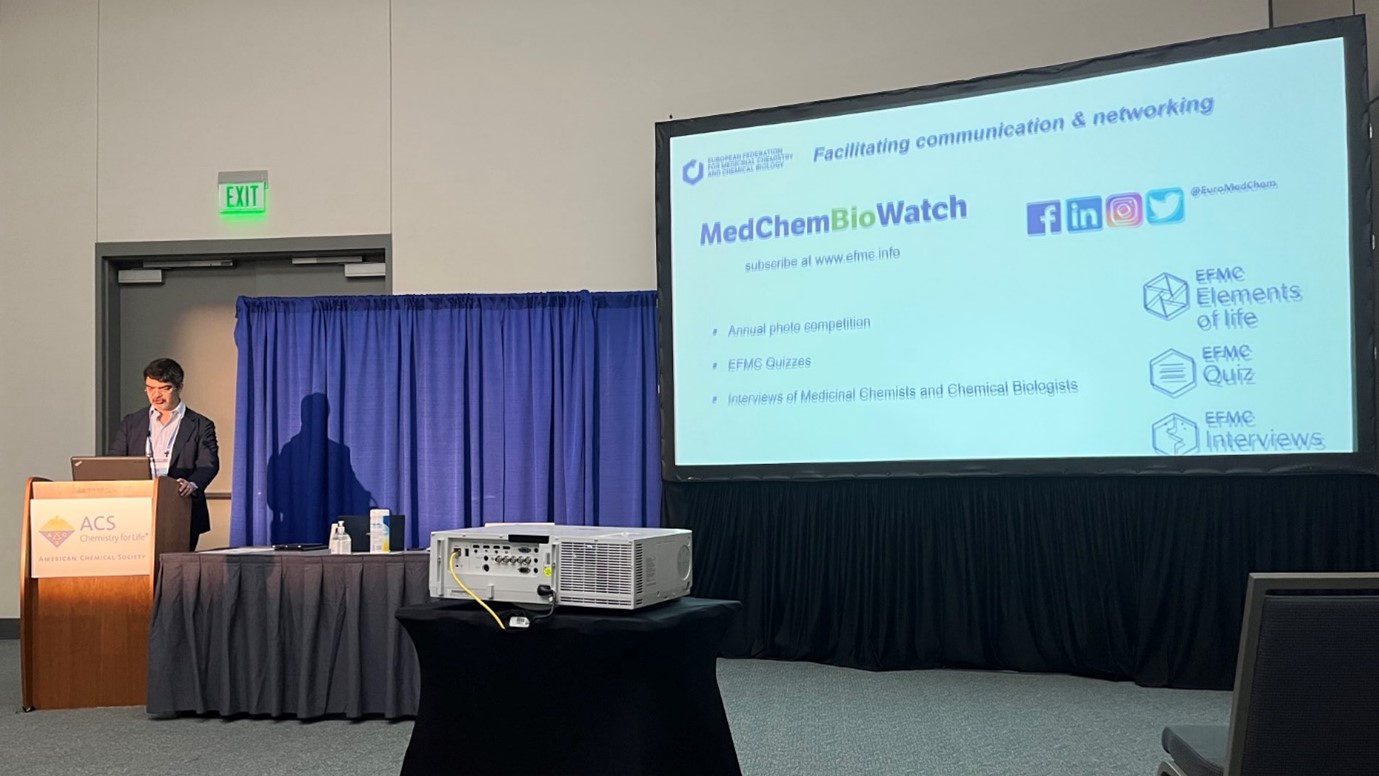
Gianluca Sbardella, chair and presider of the EFMC session
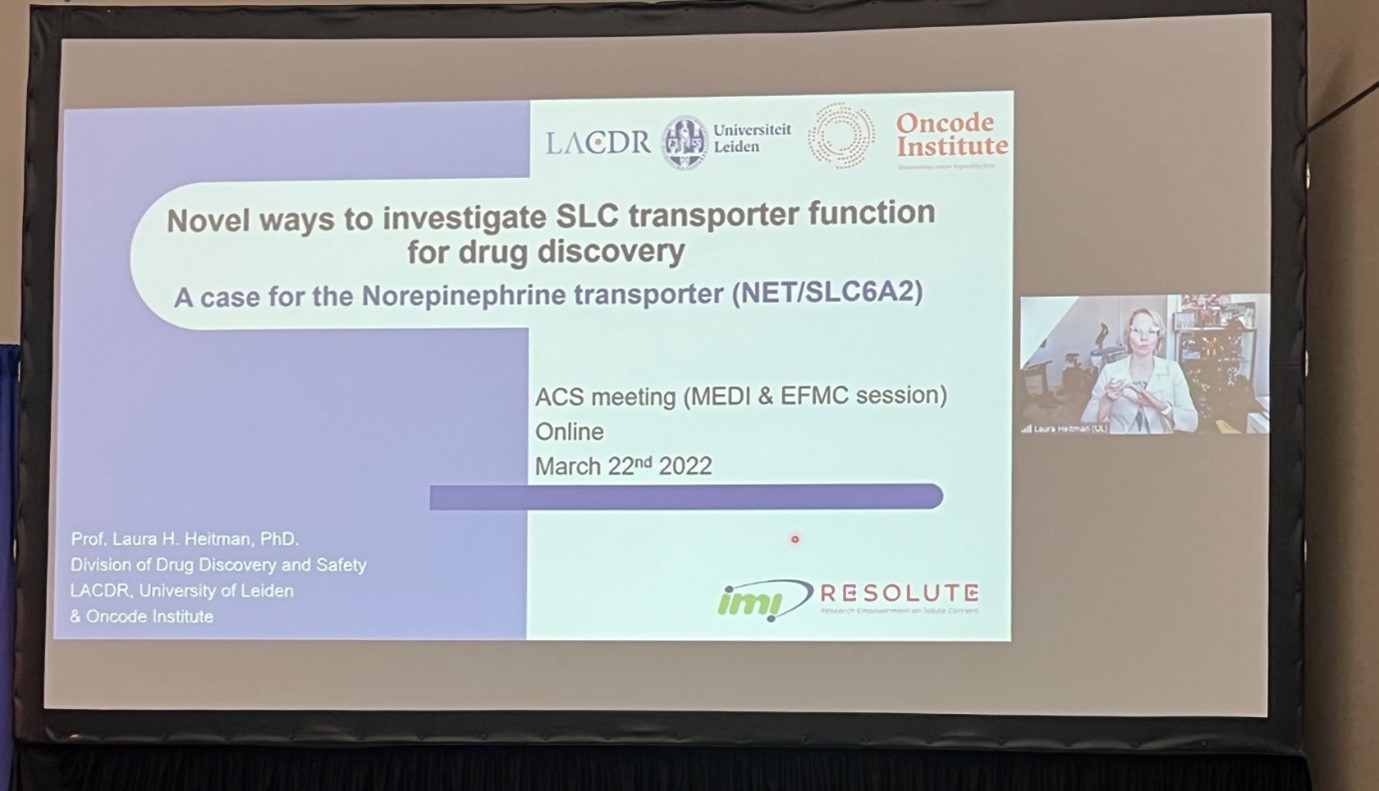
Laura Heitman, keynote lecturer in the EFMC session
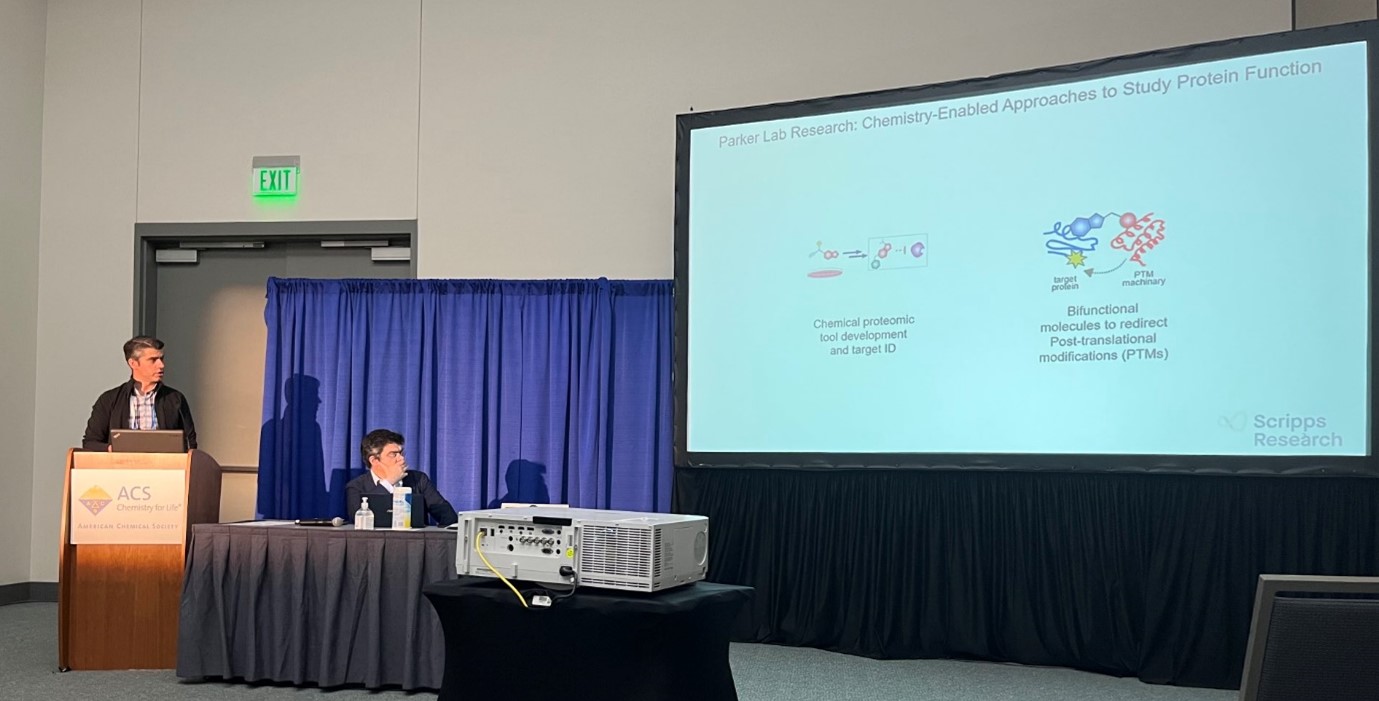
Christopher Parker, keynote lecturer in the EFMC session
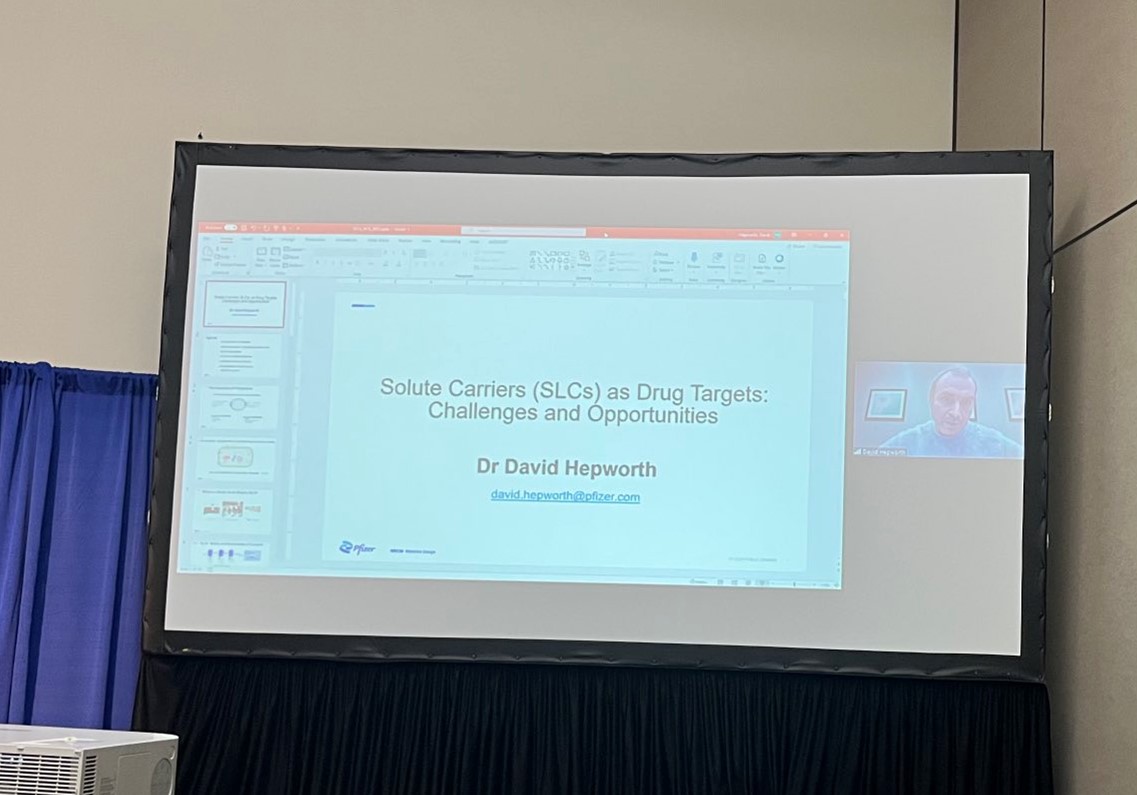
David Hepworth, keynote lecturer in the EFMC session
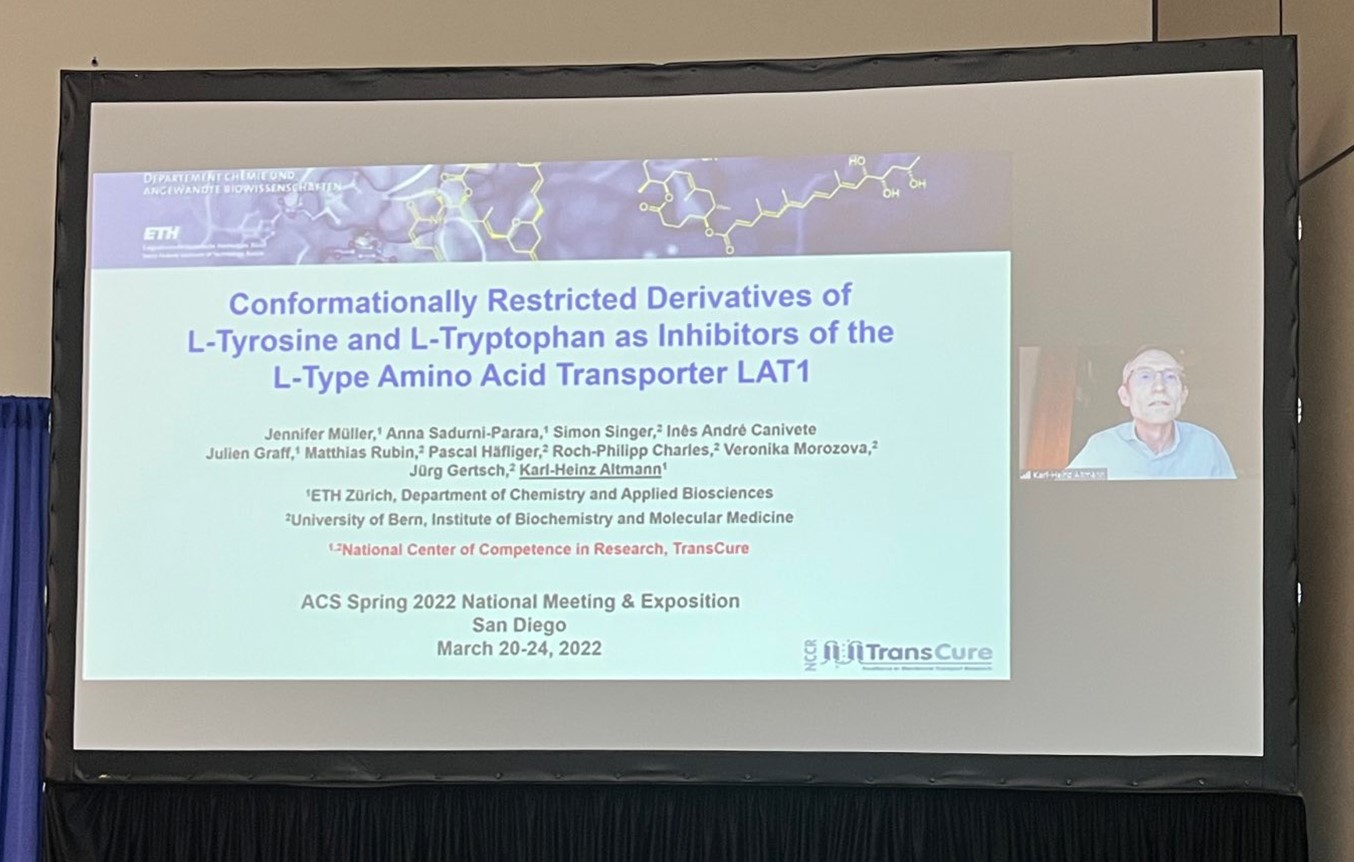
Karl-Heinz Altmann, keynote lecturer in the EFMC session
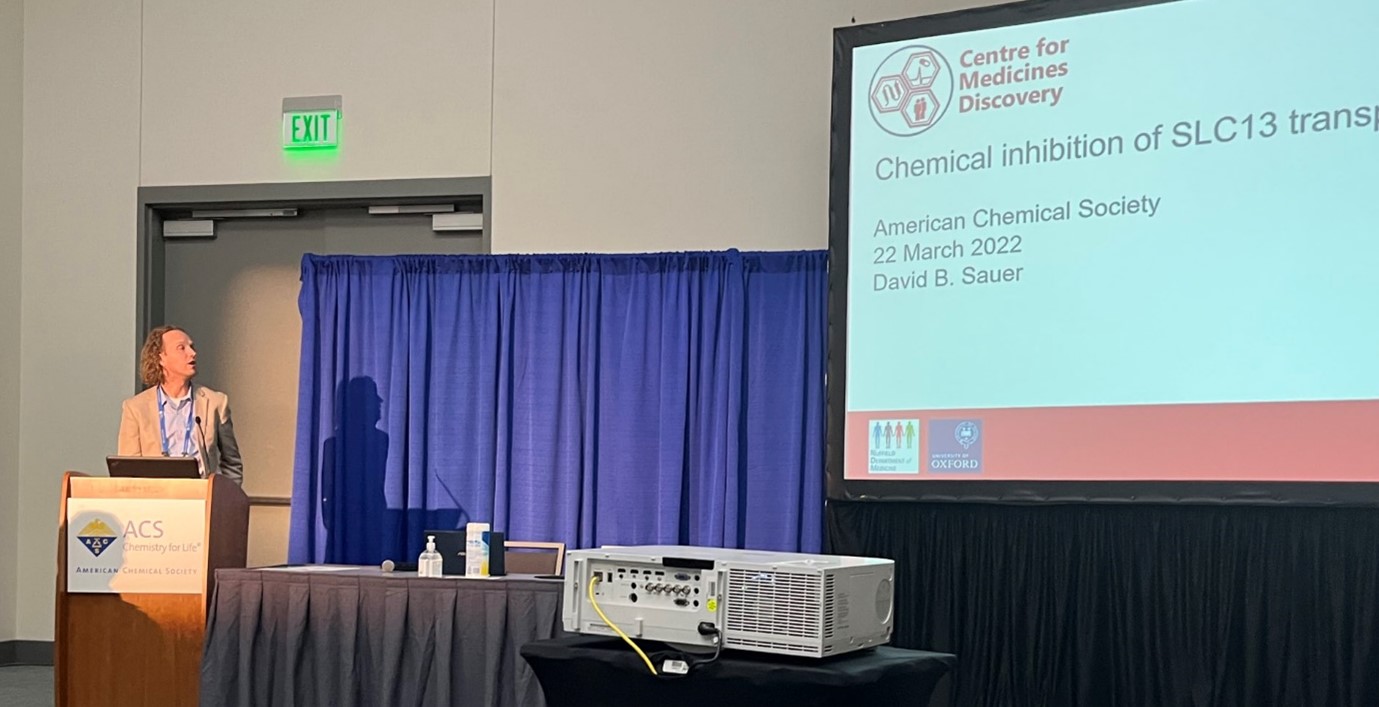
David B. Sauer, keynote lecturer in the EFMC session
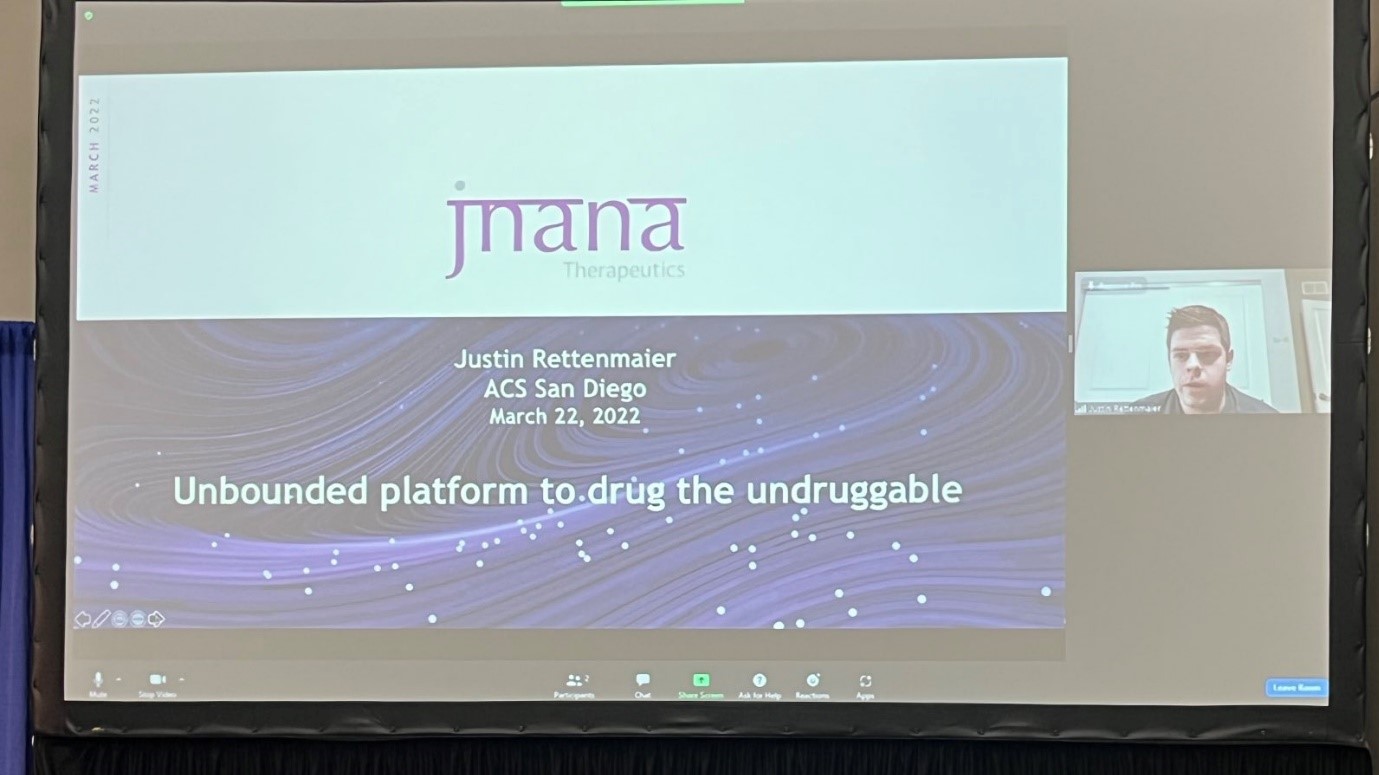
Justin Rettenmaier, keynote lecturer in the EFMC session EFMC YOUNG MEDICINAL CHEMISTS’ SYMPOSIUM (EFMC-YMCS) | REGISTRATION IS OPEN
The 9th edition of the EFMC Young Medicinal Chemists' Symposium will be held in Nice, France on September 8-9, 2022 and will be organised by the European Federation for Medicinal Chemistry and Chemical Biology (EFMC) and the EFMC Young Scientists Network (YSN).
Register before the early bird deadline and share your scientific achievements! Approximately 20 flash presentations will be selected and several prizes, both for flash presentations and posters, will be awarded during the symposium.
Submission deadline:
- for Flash Poster Presentations: May 6, 2022
- for Posters: June 10, 2022
EFMC-YMCS aims to build a strong network of young European investigators, encouraging researchers to share their scientific work, and creating competition and excellence within Europe by recognising European Champions in Medicinal Chemistry and Chemical Biology.
The Programme will include keynote lectures, oral communications, and flash poster presentations. EFMC-YMCS will also feature a poster session, an exhibition, a series of soft-skill training, and networking activities provided by the EFMC Young Scientists Network. A JOB/PHD OR POST-DOC POSITION TO OFFER IN MEDICINAL CHEMISTRY OR CHEMICAL BIOLOGY? USE THE EFMC JOB PORTAL!
The posting of PhD & Post-Doc offers and vacant positions is free and is available for any MedChem/ChemBio related jobs, in industry as well as in academic.
Job posting is now made even simpler, you only have to provide the URL of the job application.
Once reviewed, the position will be available on the EFMC website and in the monthly newsletter "MedChemBioWatch" for all to browse and apply.
DISCOVER THE RSC CHEMICAL INFORMATION AND COMPUTER APPLICATIONS GROUP
The Chemical Information and Computer Applications Group (CICAG) is one of the RSC’s many member-led Interest Groups, which exist to benefit RSC members and the wider chemical science community.
We invite interested scientists to have a look at their website and register to their various activities:
- A series of two-hour duration free workshops highlighting open-source tools and resources
- A newsletter comprising of original articles and opinion pieces of wide interest.
GET TO KNOW AMAËL MADEC (RELAY THERAPEUTICS, UNITED STATES)
In this edition, our #Iamamedicinalchemist is Dr Amaël Madec (Relay Therapeutics, USA).
Get to know him better by reading the interview below:
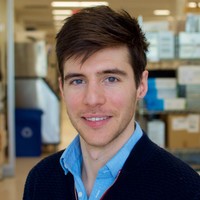
How did you get interested in Medicinal Chemistry?
My interest was first for chemistry and its impact on living systems, which dates from my high school days. Even so at the time I did not know what job would be the most suited for combining chemistry and biology. During my first days at university, I felt in love with organic chemistry, it sounded like making molecule was a lot like assembling a Lego set. From then I knew I wanted to work in this field and during my undergrade I was fortunate to do a 1-year internship at Infinity Pharmaceuticals in Cambridge, MA. This placement reinforced my conviction that medicinal chemist was the job I wanted to do.
Where and when did you obtain your PhD & Postdoc diploma?
I got my PhD from the University of Nottingham in 2015. I started grad school in Edinburgh and after 1 year my PhD advisor, Hon Wai Lam moved the group to Nottingham. I focused on developing novel enantioselective conjugate-additions using transition-metal as well as organocatalyst. Overall, my time as a grad student was a very good training for a future job as a medicinal chemist, as it gave me a good skillset for organic synthesis.
I did my postdoc in the lab of Barbara Imperiali at MIT. I focused on the development of inhibitors and probes applied to the study of the glycosylation pathways of Gram-Negative organisms. This was a completely different environment than my PhD lab and it served me very well to become a medicinal chemist because it prepared me for the cross-functional interactions that a medicinal chemist encounters every day.
What are your current research interests?
I love working on precision oncology programs. It’s a field which has such a strong impact on patients.
I am also very interested in the integration of technology within the drug discovery process, from target identification, screening, hit validation all the way to clinical trial.
How would you explain what your research area is to non-scientists?
One of my favourite metaphors to describe the job of medicinal chemist is to compare to building a Lego set which needs to impact the biology of a disease. My wife is an interior designer so I also use the analogy of kitchen cabinets design to describe it. If the cabinet is the drug and an apartment building being the body. You must build a cabinet that fits for one apartment only and it has to be built and assembled outside, then it has to make its way to the proper apartment.
What do you like best about your work?
First I like the finality of our work, trying to find new treatment for patients is such a strong motivation. On a daily basis I like the high pace and the generation of large data set. Trying to solve problems with so many variables using chemistry really keeps me on my toes, so I never get bored. I feel very lucky to be able to combine work and passion, trying to solve those problems is very exciting and stimulating.
What kind of tasks does your work involve?
I focus on the late-stage optimization of lead molecules (lead optimisation). This involves design of new compounds within the chemistry team (synthetic, medicinal, and computational chemists), synthesis at the bench, communication with our CRO partner in Asia, internal communication with the project team and the rest of the company, analysing data, triaging compounds into the different assays, rinse and repeat.
What kind of skills does your work require?
As a chemist, good synthetic skills and the ability to recognize what route/late-stage analogues will be necessary to rapidly expand SAR.As a scientist in general, enthusiasm about the results generated, need to comprehend and integrate a large amount of data (potency, ADME,PK, PD, efficacy…) in order to generate the next round of compounds design.To do it efficiently, communication within a large team is key.
What do you consider your greatest achievement in your scientific career?
Of the one I can talk about; I would say being able to successfully carry out my PhD while having a newborn baby.
Which of your papers are you most proud of and why?
I am going to pick a paper from my postdoc, not that the science is the most novel, but it was a time when I was having issues synthesizing nucleoside analogues. In order to get the project done I had to get out of my comfort zone (thanks to my co-worker Silvano Sanchini for pushing me) and learn and develop a solid phase synthesis which allowed us to make a series of uridine analogues. I also had to learn to express and purify enzymes as well as run enzymatic assays. All those skills really help me now in my interactions with my co-workers from different scientific backgrounds.
10.1021/acschembio.8b00477
What are the features of a successful PhD student or postdoc?
To be passionate and driven. Talking from my own experience it can sometimes feel lonely and draining, especially when you are facing challenges and you struggle to see the light at the end of the tunnel. Being deeply passionate about your science and driven, knowing why you are going through it and where you want to go afterwards really helps.
How would you describe yourself as a supervisor?
I had the chance to mentor undergrad and master students during both my PhD and postdoc. I love to share my passion for science and to get others involved and be able to express and try their own ideas.
What is the most embarrassing thing you have done in the lab while doing experiments, e.g. explosions?
Thankfully I haven’t had anything such as an explosion, but I had a small fire once. I was heating a large flask in an oil bath, at around 200 °C (melting urea in order to use it as solvent/reagent), the oil expanded, started to overflow, and I decided to clean the surrounding of the stir plate with some hexane…of course, some got underneath the stirrer plate and caught on fire…
What are your recommendations for a book, podcast, website, blog, YouTube channel or film?
Particular recommendation from blog: In the Pipeline: https://www.science.org/blogs/pipeline
Drughunter: https://drughunter.com/
Have you experienced any unfair situations during your scientific career?
I have been fortunate to not experience many unfair situations during my career. But working in a chemistry lab it’s hard to ignore that chemistry overall lacks diversity. I am hopeful that things are changing for the better. I am involved and I am seeing more initiatives which focus on helping people from different backgrounds to access positions in our department.
Which field of medicinal chemistry do you consider the most promising for the future
I am surely biased but integrating the latest technological progress to shorten cycle time will keep impacting more and more medicinal chemistry in the years to come.
I also thing that new modalities such as molecular glue and PROTAC will be part of the next generation of small molecules as a new efficient tool in the medicinal chemist tool kit.
What advice would you give to someone who wants to know more about your field?
Reach out to couple of medicinal chemists and get to know the field by chatting with them. If possible, try to find a program that will give you the opportunity for placements within medicinal chemistry departments.
What would you like to ask from other medicinal chemists?
How they prioritize SAR and decide when to keep pushing or abandon a series.
Also, how they balance “strictly rational” design vs empirical libraries.
What would you expect to be the next major breakthrough in medicinal chemistry?
A good maturation of the newest screening methodologies which would contribute to the delivery of high-quality hits. One key aspect is to generate lots of high-quality data which can then be combined with machine learning models in order to deliver superior hits exhibiting good parameters (LLE, selectivity…).
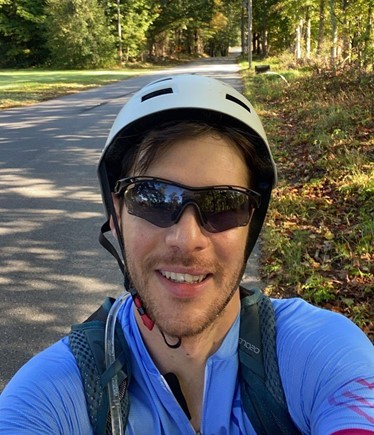
BECOME ONE OF OUR INTERVIEWEE
Are you a Medicinal Chemist/Chemical Biologist/Computational Chemist?
Are you passionate about science?
Want to be our next interviewee?
Share your story with us by taking our questionnaire:
https://www.efmc.info/interviews-efmc
NEWS FROM THE BIOLOGICAL AND MEDICINAL CHEMISTRY SECTOR (BMCS) OF THE ROYAL SOCIETY OF CHEMISTRY (RSC)
The BMCS is pleased to announces some upcoming events:
- 33rd Medicinal Chemistry in Eastern England (Hatfield Symposium)
- 2nd Synthesis in Drug Discovery and Development Meeting
- 5th RSC-BMCS/RSC-CICAG Artificial Intelligence in Chemistry
33rd Medicinal Chemistry in Eastern England (Hatfield symposium)
28th April 2022, The Fielder Centre, Hatfield, UK
Delegate Registration is now open
Website: https://www.rscbmcs.org/events/mcee/
Synopsis: Known colloquially as the "Hatfield MedChem" meeting, this a highly successful, long-standing, one-day meeting which runs annually. The scientific programme will comprise presentations showcasing medicinal chemistry case studies from tools to candidates, across a range of modalities, therapeutic areas and target classes, as well as covering more general topics of relevance to medicinal chemists from the forefront of drug discovery.
2nd Synthesis in Drug Discovery and Development meeting
4thto 5th May 2022, virtual
Delegate Registration and Exhibitor/Sponsor registration is now open
Website: https://www.rscbmcs.org/events/sddd/
Synopsis: Synthesis is at the heart of drug discovery and development. The industry has increasingly demanded higher quality clinical candidates and has sought to exploit less druggable biological targets. Successful programmes require the application of innovative synthesis in all stages of discovery and development. The medicinal chemist’s toolbox is also enhanced by the introduction of novel bioisosteres, often made available only through the application of new synthetic methods. This symposium aims to celebrate the crucial role of synthesis in the success of drug discovery and development.
AI in Chemistry: 5th RSC-BMCS /RSC-CICAG Artificial Intelligence in Chemistry
1st – 2nd September 2022, Churchill College, Cambridge and virtual
The call for abstracts will close on 22nd April, 2022 (oral) and 2nd June, 2022 (poster)
Website: https://www.rscbmcs.org/events/aichem22/
Synopsis: Artificial Intelligence is presently experiencing a renaissance in development of new methods and practical applications to ongoing challenges in Chemistry. Following the successes of three annual “Artificial Intelligence in Chemistry” meetings starting in 2018, we are pleased to announce that the Biological & Medicinal Chemistry Sector (BMCS) and Chemical Information & Computer Applications Group (CICAG) of the Royal Society of Chemistry are once again organising a conference to present the current efforts in applying these new methods. The meeting will be held over two days and combine aspects of artificial intelligence and deep machine learning methods to applications in chemistry. THIS NEWSLETTER IS KINDLY SPONSORED BY
|
|
|
|
|
|
ISSUE SPONSORED BY

Torx Software drives productivity in small molecule discovery chemistry through Torx™, a visual, chemistry aware web-based platform, inspiring teams to work together and deliver faster. Torx delivers a complete discovery cycle solution, enabling medicinal/synthetic chemists and research teams to coordinate efforts across molecule design, compound synthesis, testing and data analysis.
Read more
EFMC ORGANISED EVENTS
April 26, 2022
Virtual Event
11th EFMC-YSN MedChemBioOnline - Late Stage Functionalisation
May 8-11, 2022
Oegstgeest, The Netherlands
16th EFMC Short Course on Medicinal Chemistry New Opportunities in GPCR Drug Discovery
September 4-8, 2022
Nice, France
XXVll EFMC International Symposium on Medicinal Chemistry
September 8-9, 2022
Nice, France
9th EFMC Young Medicinal Chemists' Symposium
EFMC SPONSORED EVENTS
June 15-17, 2022
Kuopio, Finland
Chemical Sciences in Biological Challenges
June 19-22, 2022
Santiago de Compostela, Spain
XX National Meeting of the Spanish Society of Medicinal Chemistry
July 6-7, 2022
Online Event
2nd Transatlantic ECI GPCR Symposium
July 27-29, 2022
Rome, Italy
3rd Molecules Medicinal Chemistry Symposium (MMCS): Shaping Medicinal Chemistry for the New Decade
September 11-14, 2022
Bari, Italy
27th National Meeting in Medicinal in Medicinal Chemistry
September 15-17, 2022
Ljubljana, Slovenia
9th BBBB International Conference on Pharmaceutical Sciences - Pharma sciences of tomorrow
EFMC CERTIFIED SCHOOLS
July 3-7, 2022
Urbino, Italy
41st Edition of the European School of Medicinal Chemistry (ESMEC 2022)
July 19-21, 2022
Barcelona, Spain
Medicinal Chemistry and Chemical Biology in Drug Discovery: the Pharma Perspective
September 11-15, 2022
Les Diablerets (VD), Switzerland
Swiss Summer School on Chemical Biology
October 9-14 2022
Leysin, Switzerland
Swiss School on Medicinal Chemistry in Leysin
JOB PORTAL
Biophysics of drug-target interactions (tenure track assistant professor), Vrije Universiteit Amsterdam, Chemistry & Pharmaceutical Sciences Amsterdam, THE NETHERLANDS
Read more
Postdoc in Computational and Synthetic Chemistry for Sustainable Animal Production, University of Copenhagen, Department of Veterinary and Animal Sciences Frederiksberg, DENMARK
Read more
Research Scientist in medicinal chemistry (H/F), Edelris, Edelris Lyon, FRANCE
Read more
Senior Research Scientist in Medicinal Chemistry permanent contract (M/F), Edelris, Edelris Lyon, FRANCE
Read more
(Senior) Scientist Medicinal Chemistry, Proxygen GmbH, Chemistry Vienna, AUSTRIA Read more
Research Associate Medicinal Chemistry (PhD), Evotec, Medicinal Chemistry
Toulouse, FRANCE
Read more
Group Leader in Medicinal Chemistry, Evotec, Medicinal Chemistry
Toulouse, FRANCE
Read more
|
|
